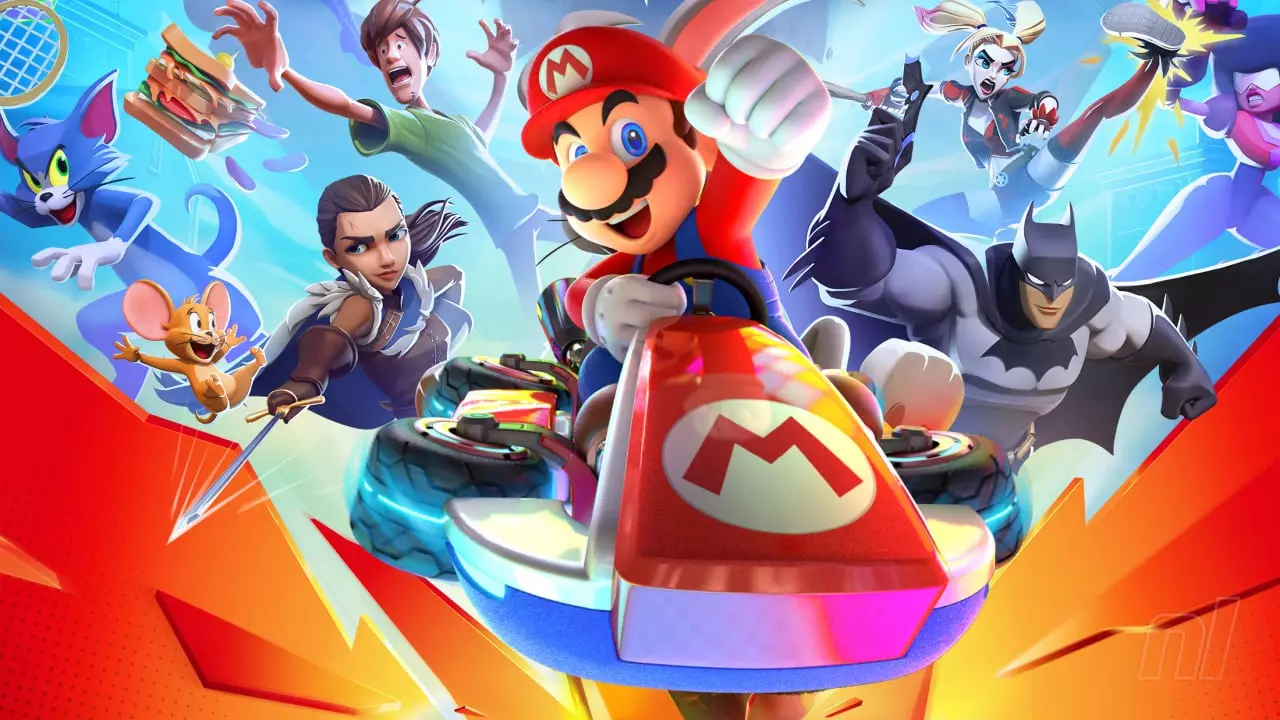In a surprising turn of events last month, Warner Bros. Interactive Entertainment announced the shuttering of three studios, including Player First Games—most recognized as the creative force behind MultiVersus. This enterprise, though ultimately met with closure, had previously embraced grand ambitions the likes of which echoed the exhilarating charm of prominent Nintendo franchises. Among these ambitions was a project shrouded in excitement yet overshadowed by numerous setbacks: a Mario Kart-inspired racing game codenamed “Moonlight,” developed by WB San Diego.
This endeavor offers a tantalizing glimpse into what could have been—a vibrant racing universe spinning on the foundation of Warner Bros.’ vast intellectual property (IP) catalog. Yet, like a well-crafted racing game that falls short on execution, WB San Diego’s efforts were similarly derailed long before the finish line could be crossed.
The Dream Team and the Conceptualization
According to reports from industry insiders, including Sacred Symbols podcast host Colin Moriarty, Project Moonlight was no mere side project; it was envisioned as a robust competitor in the increasingly crowded kart-racing genre. The game would draw its diverse cast of characters from beloved franchises such as Adventure Time and Scooby-Doo, aiming to create an enticing blend of nostalgia and fun for both younger gamers and those who have grown up with these IPs. Despite the immense potential for fan engagement, the development process was plagued with challenges that hindered the project from ever seeing the light of day.
Set against the backdrop of the COVID-19 pandemic, the inception of Project Moonlight would have likely required innovative solutions to unprecedented hurdles. Unfortunately, internal instability—characterized by frequent staff transitions and ideological rifts over crucial decisions, such as monetization strategies—significantly stymied progress. The studio’s dilemma regarding whether to launch the title as a free-to-play or a paid experience exemplifies the kind of misunderstandings that can potentially derail a creative project.
The Competitive Landscape
In examining Warner Bros.’ ventures, it’s essential to analyze the competitive context of kart racing games. The genre is not merely about fast-paced racing; it’s about weaving together a rich tapestry of character-driven narratives, world-building, and gameplay mechanics that resonate emotionally with players. While many properties, including Disney Speedstorm and DreamWorks All-Star Kart Racing, have sought to carve out their niche within this domain, none have reached the rapturous heights of Mario Kart’s legacy.
Warner Bros.’ ambitious leap into this space appears to have been strategically rational, fueled by the idea that leveraging established characters could draw an enthusiastic crowd. Yet, their vision fell short when judged against the reality of their previous undertaking—MultiVersus—an endeavor that also derived its DNA from various iconic properties but failed to maintain a sustainable player base.
The Internal Strife and Misaligned Expectations
The development team’s frustration and perceived inequity only compound the complexities surrounding Project Moonlight. Reports suggest rampant animosity among team members who felt unjustly deprived of an opportunity to launch a project of their own while they watched their counterparts at Player First achieve a double launch with MultiVersus. Such feelings of discontent can lead to creative inertia, hampering not just productivity but also the innovative spirit that is critical in game development.
This internal strife reflects a broader issue within the gaming industry: the often precarious balance between creativity and corporate strategy. The excessive focus on monetization at the expense of the core gaming experience can choke the life out of innovations that have tremendous potential, leaving developers with brilliant ideas that never get to grace the screens of eager gamers.
The Road Not Taken
As we reflect on the unrealized dreams of Project Moonlight, it serves as a poignant reminder: the gaming world is filled with ambitious initiatives that can flicker brightly, only to fizzle out due to a multitude of factors—be it corporate restructuring, creative differences, or the vagaries of market demands. While Warner Bros.’ dreams of entering the kart-racing arena may have sputtered, they echo a persistent truth in the industry: success is not guaranteed, even for those with remarkable intellectual properties.
With MultiVersus slated to shut down in 2025, what remains is the possibility of learning from these challenges. As players and developers alike continue to search for fresh experiences, perhaps Warner Bros. can revisit this idea in the future, taking heed of the lessons learned from both their triumphs and disappointments.

